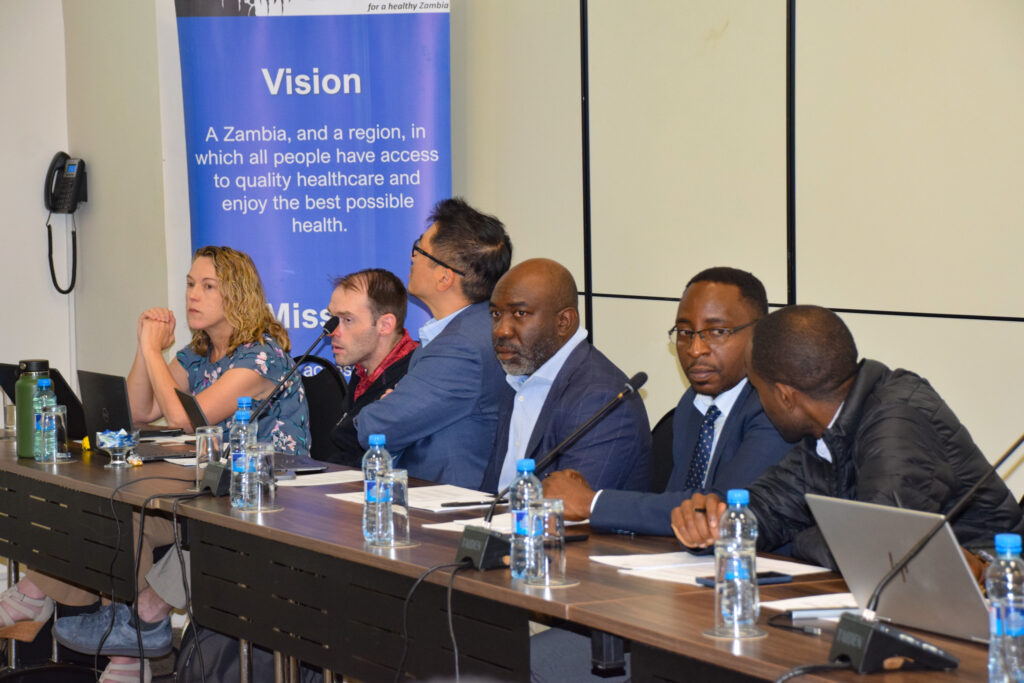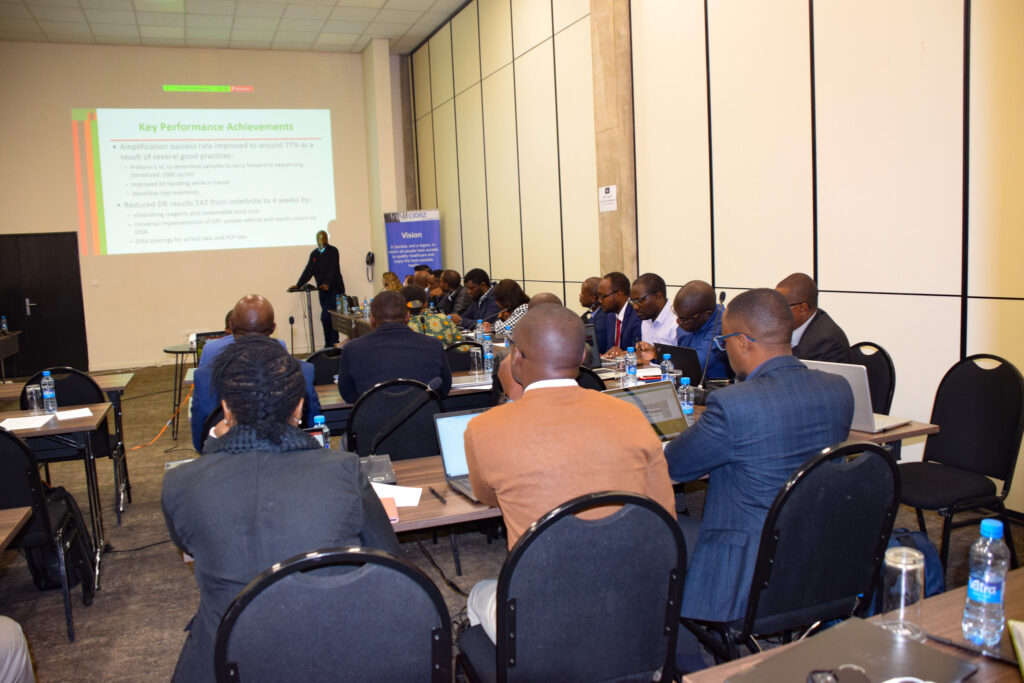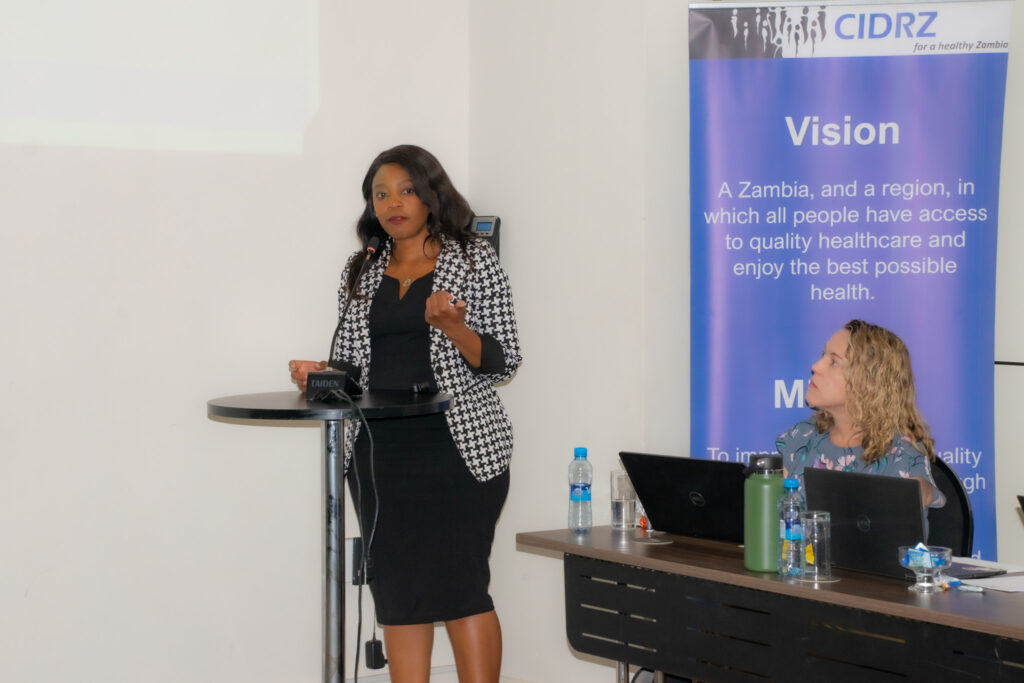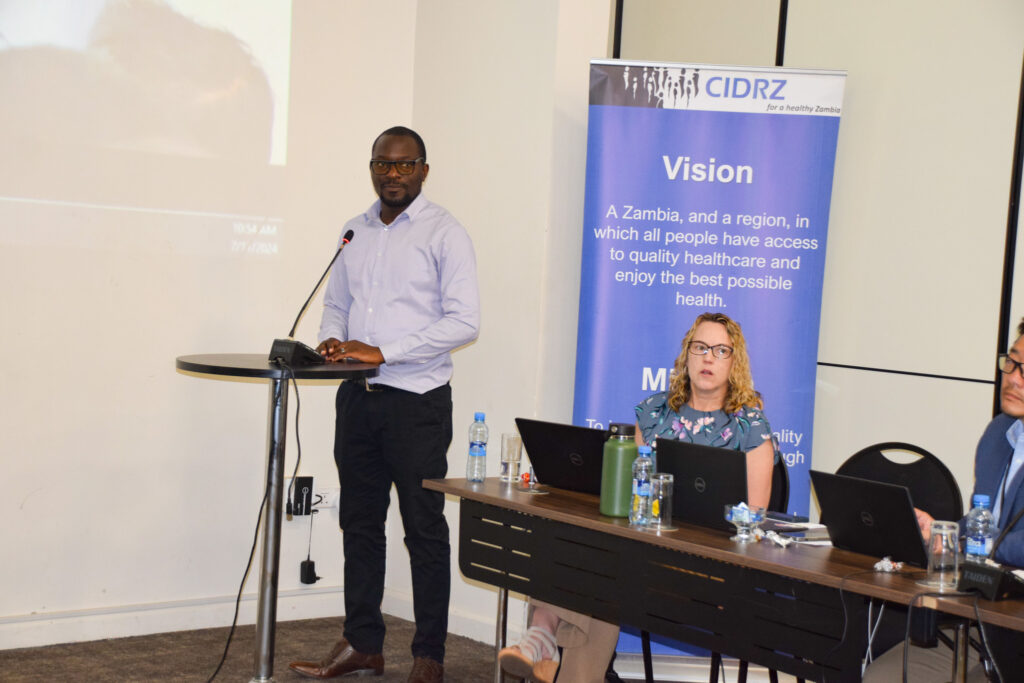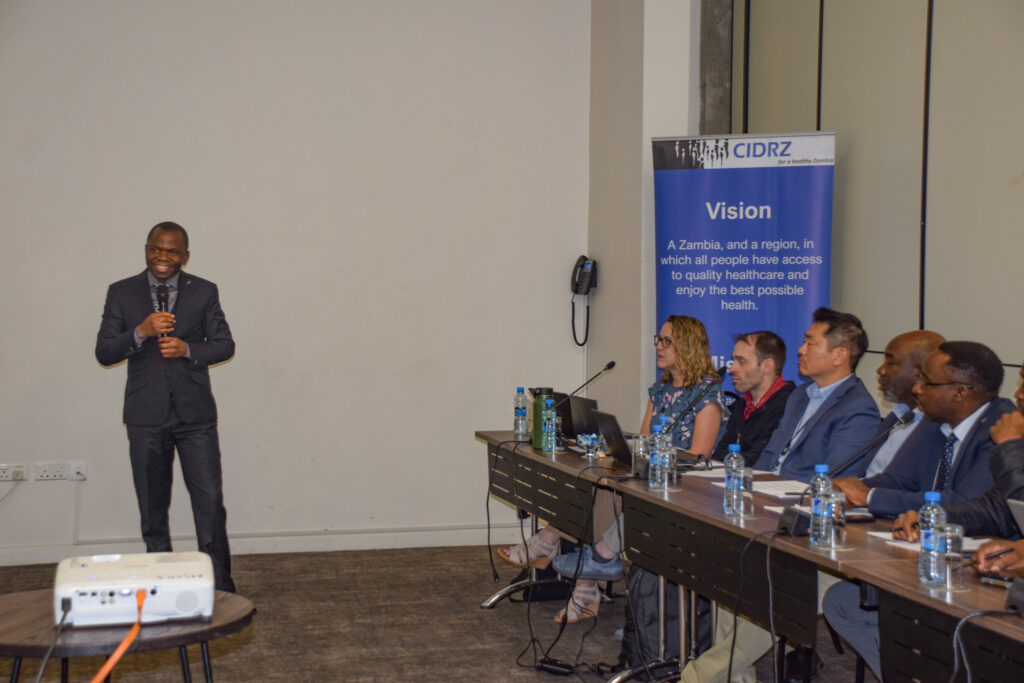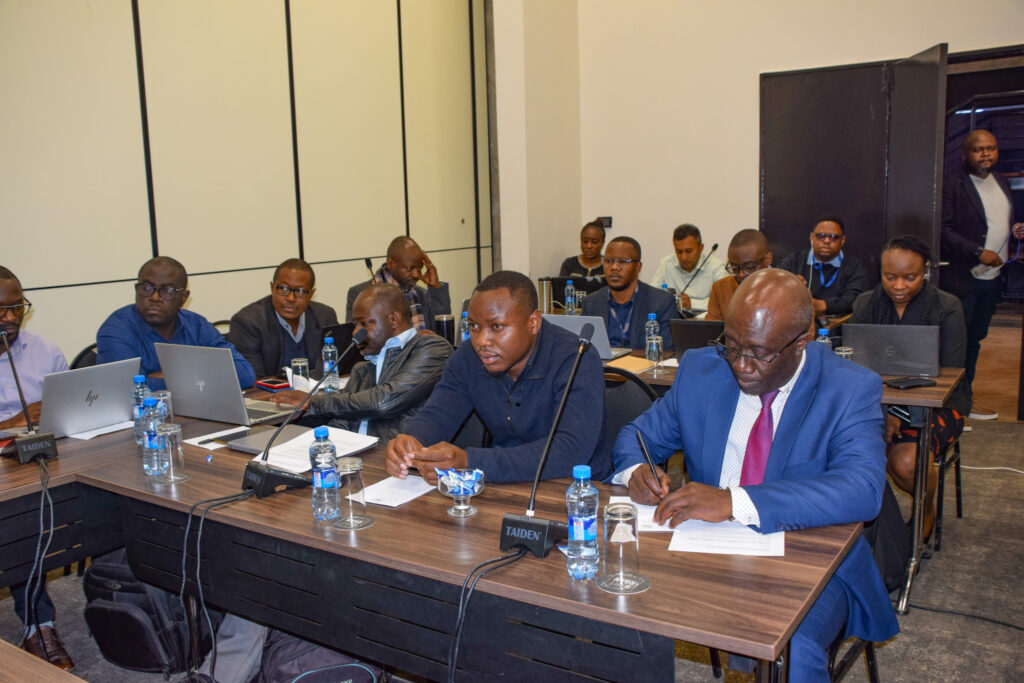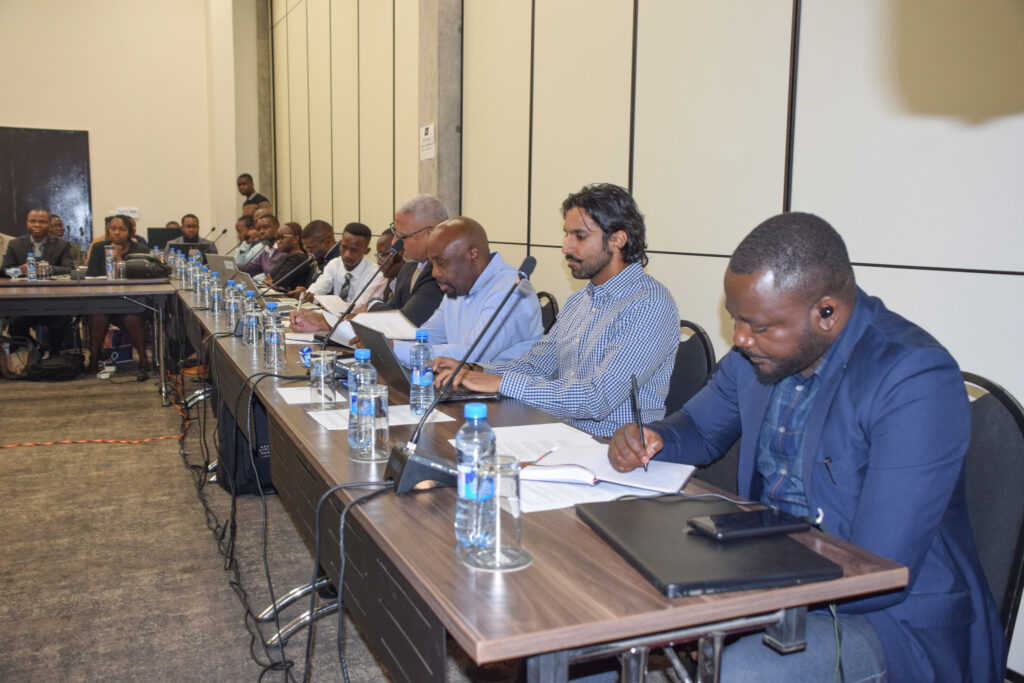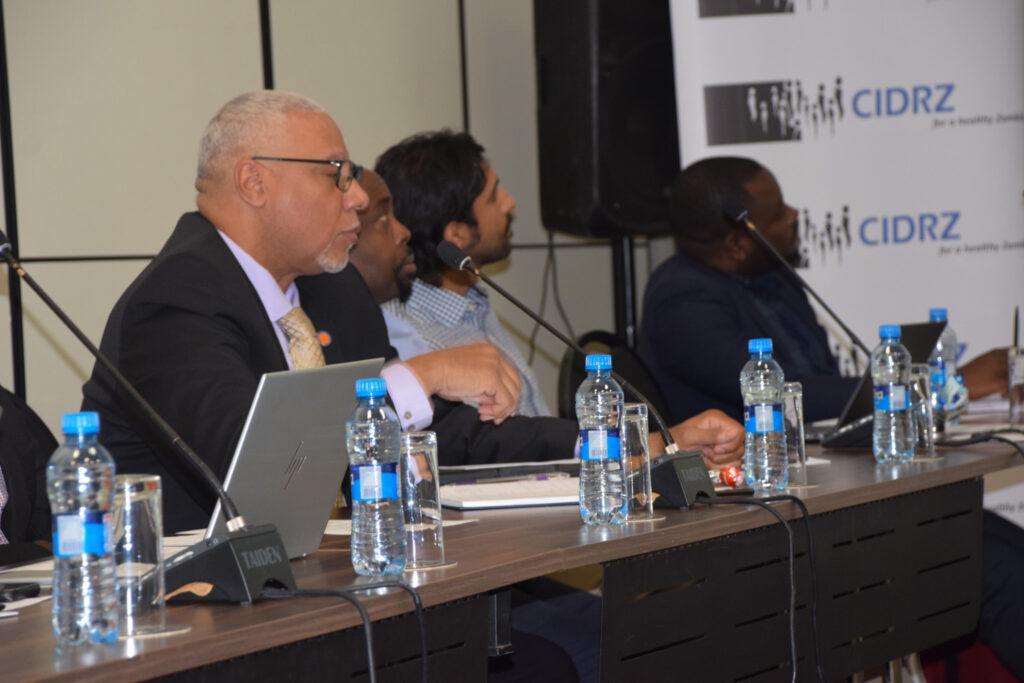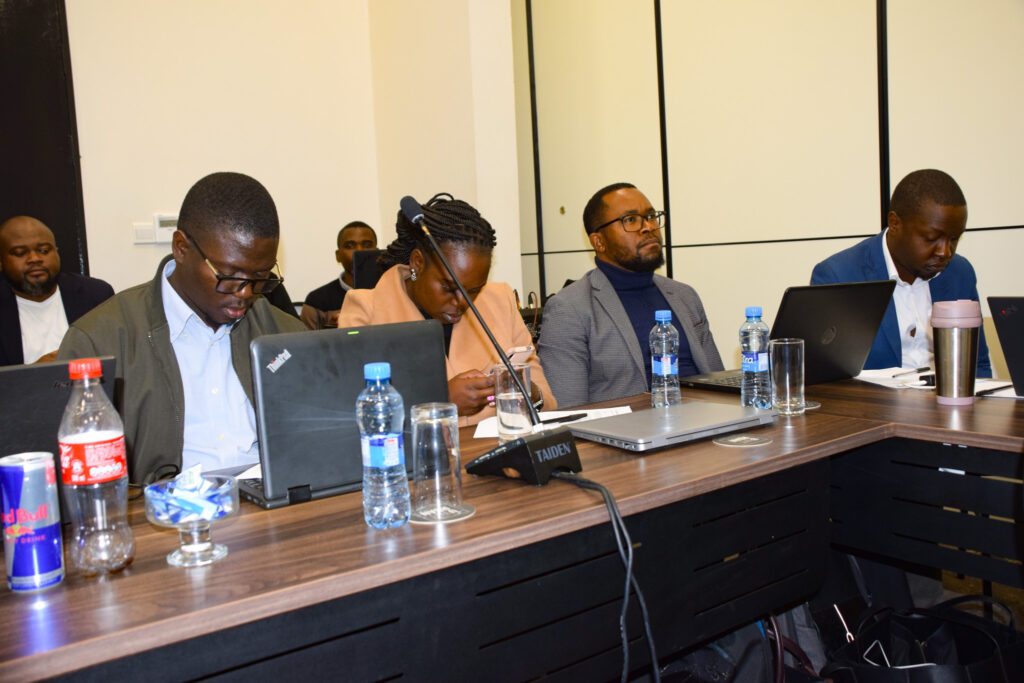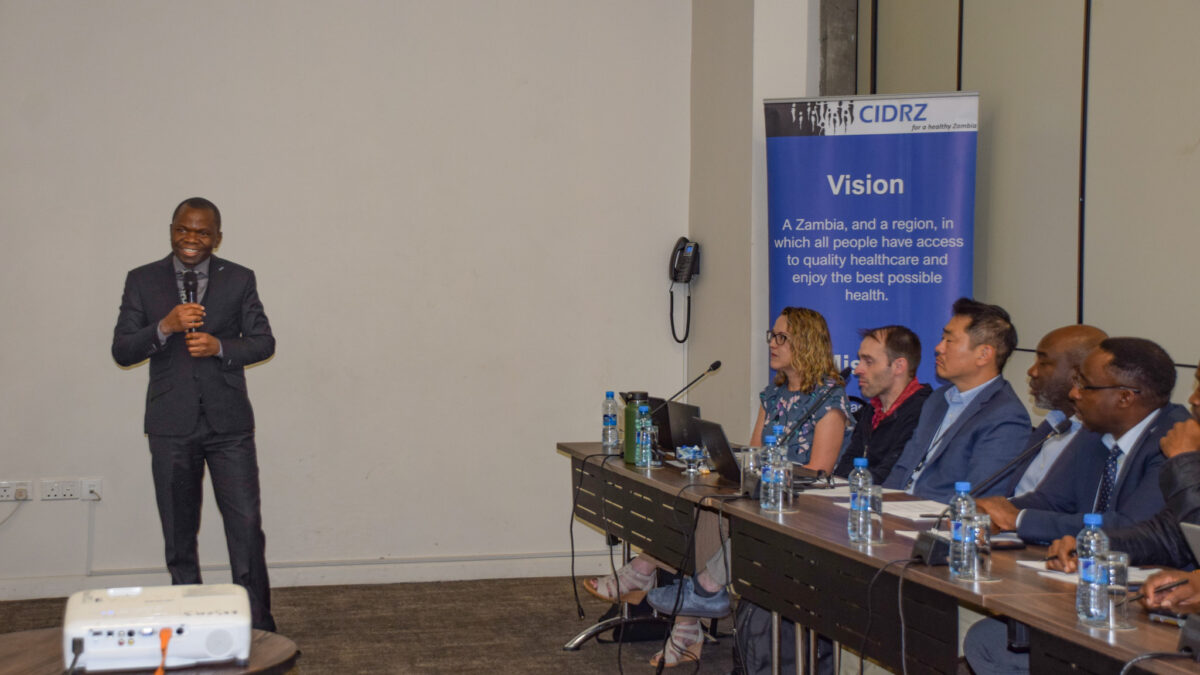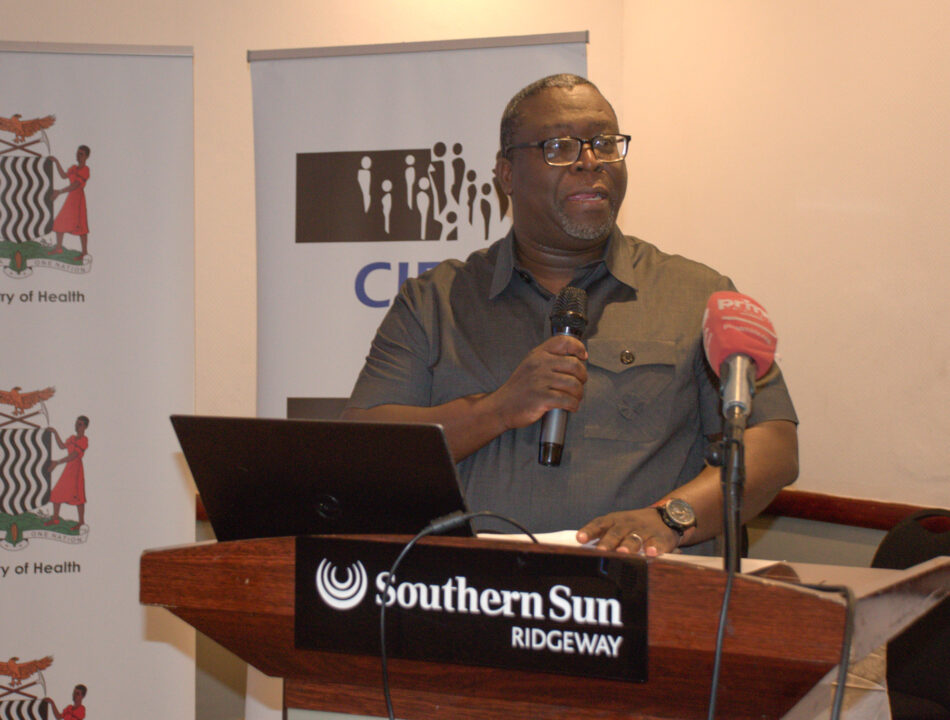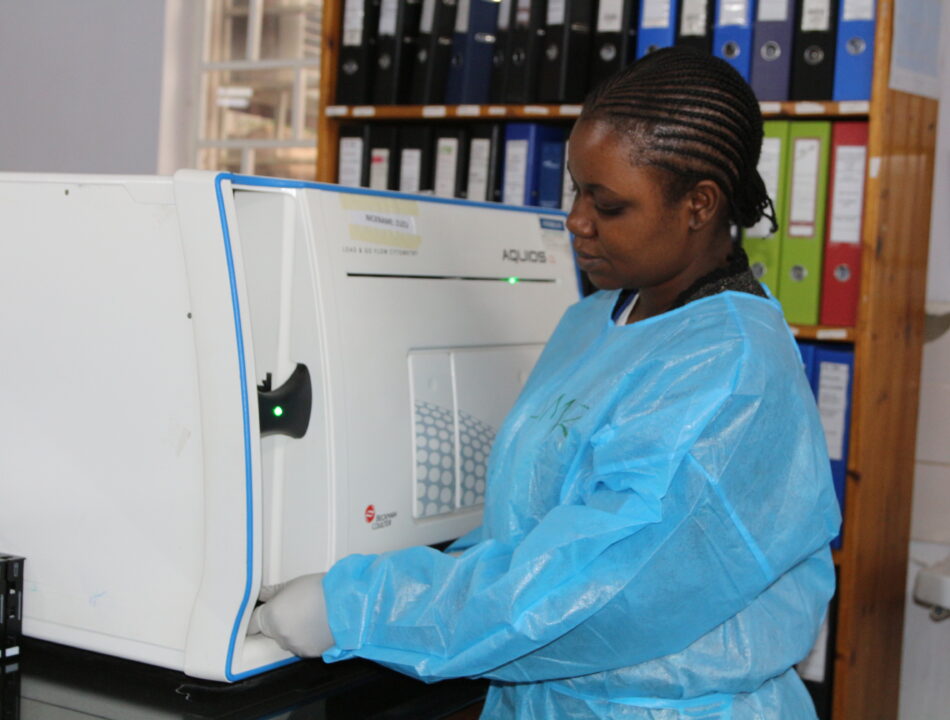
CIDRZ and DFZ Conclude a High-Level Meeting to Roll Out SmartCare Pro Across 58 Health Facilities Under the PEPFAR-funded DoD/DHAPP Project.
July 19, 2024
CIDRZ Reports Significant Progress in Defense Force Prevention Programme.
July 25, 2024The Ministry of Health has commended its partners for their crucial role in monitoring the patterns and prevalence of HIV Drug Resistance (HIVDR) in Zambia.
Ministry of Health Director of Infectious Diseases Prof. Lloyd Mulenga said the role played by partners like Centers for Disease Control and Prevention (CDC), United States Agency for International Development (USAID), and the Centre for Infectious Disease Research in Zambia (CIDRZ), is crucial in informing treatment guidelines and improve the quality of treatment programs.
Prof. Mulenga said if left unchecked, HIVDR can lead to treatment failure, increased costs, and the transmission of drug-resistant strains.He appreciated the partner’s continued technical support to the Ministry while emphasising the need for a concerted effort to combat HIVDR.
Prof. Mulenga added that it was crucial to optimise HIVDR testing to achieve the best patient outcomes and national health targets.
“Timely identification and switching of drug-resistant patients to effective ARVs are essential for maintaining progress towards our national goal of eliminating HIV by 2030,” he said.
Meanwhile, the Ministry of Health National Coordinator for the HIV Drug Resistance programme, Mr David Rutagwera, during his presentation, alluded that the country was making significant progress in controlling HIVDR.
Mr Rutagwera said the country had launched a programme to detect HIVDR in individuals on ART with suspected treatment failure to improve patient management and another, a surveillance system called Continuous Acquired Drug Resistance Monitoring in Zambia (CADRE—ZM), to monitor HIV DR patterns in the country to inform policy.
Mr Rutegwera further explained that samples collected from healthcare facilities nationwide are referred to PCR laboratories at provincial centres before being sent to DR laboratories in Lusaka and Ndola for analysis.
He said three laboratories, two at the University Teaching Hospital (UTH) in Lusaka and one at Arthur Davison Children’s Hospital (ADCH) in Ndola, are currently conducting HIV drug resistance testing, and he indicated that two more DR labs were in the pipeline.
Mr Rutegwera said these laboratories, supported by the CDC, USAID, and Global Fund, can process over 7,000 samples annually.
The two officials from the Ministry of Health were speaking at a recent meeting organised by the Ministry of Health, with support from @CDC Atlanta, to review the implementation of the HIVDR programme in Zambia.
During the same meeting, representatives from six provinces also presented on optimising high viral load (HVL) and HIV DR testing management, highlighting their achievements, challenges and plans.
This joint effort by the Ministry of Health and its partners aims to ensure that all individuals needing HIV drug resistance testing receive it on time, allowing for swift and effective treatment adjustments. This strategy is crucial to maintaining progress towards the national goal of eliminating HIV by 2030.
